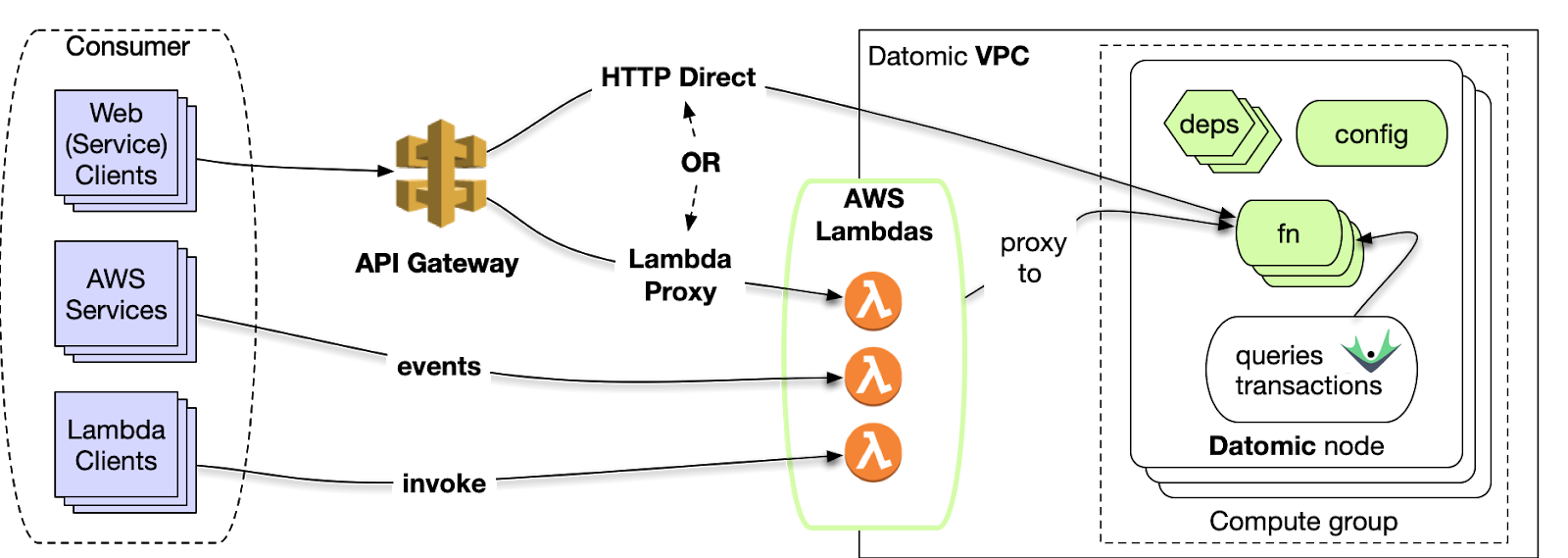With analytics support, your data scientists, analysts, and operations people can directly access Datomic using the languages and tools they already know (e.g. SQL, Python, R, Tableau, Metabase, Superset and more), without you having to do any ETL.
The analytics metaschema specifies a mapping from Datomic entities and attributes to dynamic SQL tables and columns, as shown in the example below:

In Cloud, the bastion server has been renamed to access gateway, as it now also supports analytics. Analytics support is automatic when you select an EC2 instance size that supports it, and costs nothing beyond the cost of the EC2 instance.
In On-Prem, analytics support is available via the bin/presto script in the distribution.
To learn more about the analytics preview:
..




